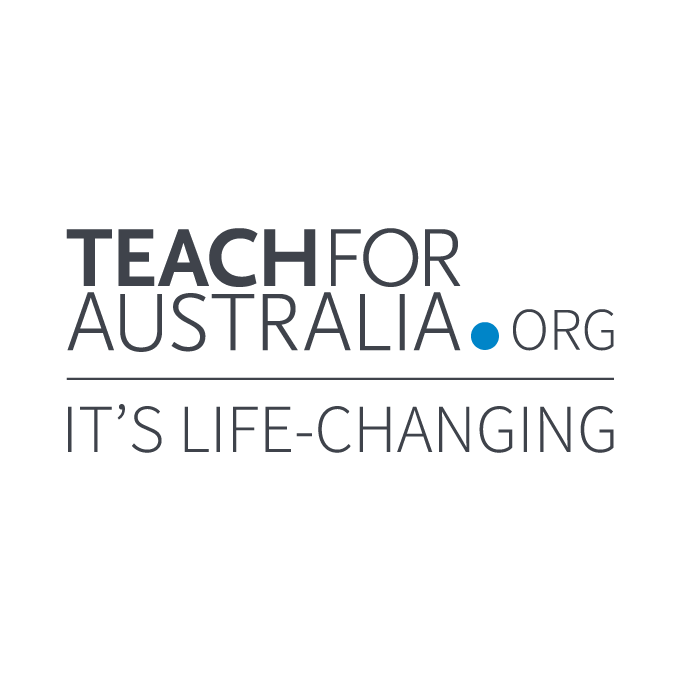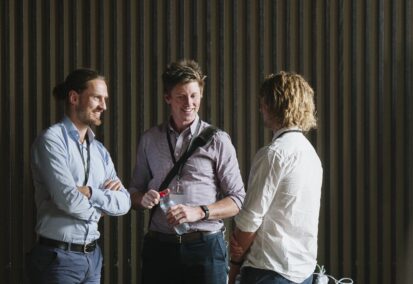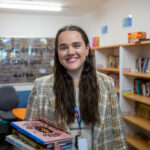Alumni Manager Jun Zhang (Cohort 2014) held a live virtual Q&A session with five Teach for Australia Alumni who are working beyond the classroom to find out more about their experiences since the Leadership Development Program and how they got to where they are today.
Timea Stan (Cohort 2014)
Timea studied Law and Policy at the University of Melbourne before teaching at Northern Bay P-12 College in Victoria.
Now, she is working in policy at the Victorian Department of Education with a focus on family violence reform.
Michaela Epstein (Cohort 2012)
For Michaela Epstein, who spent two years teaching maths to students at Chaffey Secondary College in Mildura, Victoria, the challenge of getting students to engage with the subject is one she has grappled with throughout her career.
She believes we need to change how Australians think and feel about maths.
Since then, she’s dedicated herself to maths education, working as a numeracy coach in Hume and as Head of Learning at Maths Pathway.
Tal Ellinson (Cohort 2015)
Tal taught Maths at Mill Park Secondary College in Victoria.
Now, he works at edutech company Edrolo and is a tutor and presenter for Maths Methods and Specialist Maths.
Srinivas Manchikanti (Cohort 2011)
Srini taught Business Studies at Horsham College in Victoria.
After the Program, he volunteered for six months in financial policy for a literacy organisation in the Solomon Islands.
Now he’s a Management Consultant at Nous Group.
Peter Deutscher (Cohort 2012)
Peter taught Physics and Maths at Thomas Carr College in Victoria.
After completing the Leadership Development Program, he worked at The Organisation for Economic Co-operation and Development (OECD), paving the way to study public policy at the Harvard Kennedy School of Government with a focus on experiential teaching.
In 2018, he will be moving to Canberra to work at the Department of Prime Minister and Cabinet.
Missed the event? Read excerpts from the transcript below.
Timea Stan (Cohort 2014)
“[The] experience has really helped me to keep the end-user at the forefront of everything I do — to make sure that certain voices are heard when the decision-making bodies or voices don’t represent that diversity.”
Timea studied Law and Policy at the University of Melbourne before teaching at Northern Bay P-12 College in Victoria. Now, she is working in policy at the Victorian Department of Education with a focus on family violence reform.
What kind of mindsets, skills and knowledge did you develop in the Leadership Development Program that have helped you in your career?
The hands on experience of moving into a new community that I didn’t know much about, where the locals experienced a way of life I hadn’t. I thought I understood this on a theoretical level, but experiencing that disadvantage changed my mindset the most.
Now I’m working in wellbeing, health and engagement, and that experience has really helped me to keep the end-user at the forefront of everything I do — to make sure that certain voices are heard when the decision-making bodies or voices don’t represent that diversity.
Looking back, is there anything you would’ve done differently?
Not much. I feel like we were very supported to be conscious that we had to make the most of the experience, so I tried to fit as much as possible to get as much as I could out of it. One thing I didn’t do very well was look after myself. I would have been more active in self-care, setting more boundaries in what I would and wouldn’t consume my energy with.
Is what you’re doing now what you’d always envisioned doing? Do you miss the classroom?
I thought I’d stay longer in teaching, but I was exhausted. I do miss it – especially the kids and the relationships with them.
I miss the creativity and fun, and the ability to be active and move around. I especially miss the autonomy – this is something that’s really missing from working in a big bureaucracy.
I was always interested in policy – working at the macro level to change the system. Every time I meet teachers, or am in discussions about them I get a pang — maybe I should go back next year? I’m enjoying my work now, it’s fascinating and interesting so I want to see where it leads.
What do you think other Alumni can do to keep leveraging the network and to stay connected to the mission of achieving educational equality in Australia?
What keeps surprising me is how often I run into Alumni or other people who have had something to do with Teach For Australia. I’d say, find your people wherever you are. Make sure you’re working towards that vision, whatever you’re doing. That might mean staying connected to your cohort, to the broader Alumni community, or even finding other people you’re aligned with, who have different perspectives on working towards the same goals.
What advice would you give to those finishing the program about going down the path you have taken?
Take a strength-based approach to yourself. Recognise that you have learned a lot of skills that are beyond pedagogy and applicable to a range of different contexts. I came into a policy role straight out of teaching because I could highlight and communicate my transferable skills. I had to work a lot on my own mindset to realise that I had the skills that would be valuable in this context.
Michaela Epstein (Cohort 2012)
“Go to events, join groups and stay invigorated. The beautiful thing about the Teach For Australia community is that we all came in to do the same thing. This is really powerful at bringing people together.”
For Michaela Epstein, who spent two years teaching maths to students at Chaffey Secondary College in Mildura, Victoria with Teach for Australia, the challenge of getting students to engage with the subject is one she has grappled with throughout her career. She believes that the answer is bigger than the classroom and that we need to change how Australians think and feel about maths. Since then, she’s dedicated herself to maths education, working as a numeracy coach in Hume and as Head of Learning at Maths Pathway.
What kind of mindsets, skills and knowledge did you develop in Leadership Development Program that have helped since you left?
I’m better at grappling the balance between patience and impatience. I learned quickly in teaching that there are some students who are systematically disadvantaged when they enter and leave the school system – I was impatient that society was not doing enough about this.
But at the same time, through my interactions and work, I learned that I had to be patient in my expectations of people, how change can happen, and with myself. Don’t push too hard, hold onto your values and vision and know that there are times when you need to stop and look after yourself.
Looking back, is there anything you would’ve done differently?
I would have been more patient with myself and my students. I wanted to apply a whole lot of skills at once so that I could be the best possible teacher, without acknowledging that this takes time. We fail and that’s okay, we need to learn from that and move through it – it took me a while to learn that skill.
What do you think other Alumni can do to keep leveraging the network and to stay connected to the mission of achieving educational equality in Australia?
Seek opportunities to meet people, keep an open mind, stay connected and make the most of the community around you.
Use these opportunities to interact with different Alumni who have the same passion, who are solving similar problems. Go to events, join groups and stay invigorated. The beautiful thing about the Teach For Australia community is that we all came in to do the same thing, so we automatically know a lot about each other and the experiences we’ve had. This is really powerful at bringing people together.
What advice would you give to those finishing the program about going down the path you have taken?
Be proactive. Sometimes there are so many options you don’t know where to step. Try out different things, but stay true to what you believe in and seek out organisations and schools that align with your beliefs and core values.
Teach For Australia is great at providing opportunities to bring the community together, so stay in contact and make the most of other Alumni. And take risks with yourself – since finishing the Program I’ve found myself in uncomfortable situations that have made me realise I can do things that I wouldn’t have expected I could do. The more you try, the more opportunities you’ll find.
Tal Ellinson (Cohort 2015)
“Teach For Australia Alumni have really interesting networks – in policy, business and education. They know lots of people and are part of a much larger community, with events where we can all connect with others in this work.”
Tal taught Maths at Mill Park Secondary College in Victoria. Now, he works at edutech company Edrolo and is a tutor and presenter for Maths Methods and Specialist Maths.
What kind of mindsets, skills and knowledge did you develop in the Leadership Development Program that have helped since you left?
Aside from the practical skills, broadly three things:
- An understanding of educational disadvantage. Being able to have conversations about this and speaking from experience has been really interesting socially and professionally.
- Time management. Rather than just working for the sake of working, with Teach For Australia, you work really hard, but you do what you do because it will help the students.
- Coping with stress and pressure. When you’re teaching, you’re trying to understand and support 50 or more people, and it always ends well. That really puts things into perspective now.
Is what you’re doing now what you’d always envisioned doing? Do you miss the classroom?
I knew I wanted to get into teaching, but not necessarily for the long term. I miss teaching, the social environment, being with the kids. But I never know what’s next.
What do you think other Alumni can do to keep leveraging the network and to stay connected to the mission of achieving educational equality in Australia?
Personally, I’ve been tutoring a Year 10 student over Skype this year, and those have been the times that I’ve felt most valuable. I think supporting kids who really want to learn more can be a great opportunity.
Teach For Australia Alumni have really interesting networks – in policy, business and education. They know lots of people and are part of a much larger community, with events where we can all connect with others in this work.
What advice would you give to those finishing the Leadership Development Program about going down the path you have taken?
Take ownership of where you’re going to go next – whether that in industry or teaching. Talk to people and find out what it’s going to be like. Interviewers ask you questions, so feel free to ask them what the environment is going to be like – ask if you can work there for a day and see if you enjoy it. Deciding what you’re going to do is important, so make an effort to talk to those people.
Srinivas Manchikanti (Cohort 2011)
“Five years on, I keep in touch with my cohort. I am energised by the work others are doing in the network.”
Srini taught Business Studies at Horsham College in Victoria. After completing Teach for Australia’s Leadership Development Program, he volunteered for six months in financial policy for a literacy organisation in the Solomon Islands. Now he’s a Management Consultant at Nous Group.
What kind of mindsets, skills and knowledge did you develop in the Leadership Development Program that have helped since you left?
I was young at the time, so a key mindset for me was learning how to learn again from the smartest people of my generation. My fellow Associates were constantly striving to do better and knew what it took to get there. I learned from my peers.
Looking back, is there anything you would’ve done differently?
Stacks of things. But mainly, as a 20-year-old, I would have invested a lot more in the community I was in.
Do you miss the classroom?
I miss it many days of the week. I miss the impact you can have, the kids, the joy and the fun. But I also love what I’m doing now.
Why did you volunteer in the Solomon Islands?
I was always going to do it. My dad was born in raised in India, grew up in poverty and used education to pull himself out – a typical story, but one that resonates strongly with me. International development was always something I’d wanted to do.
What do you think other Alumni can do to keep leveraging the network and to stay connected to the mission of achieving educational equality in Australia?
Events are a great way to keep connected with people. Five years on, I keep in touch with my cohort. I am energised by the work others are doing in the network, which reminds me how I can contribute in my role as a consultant.
What advice would you give to those finishing the program about going down the path you have taken?
Know that you learn so much more through the Program that how to teach 20 Year 7s. As a consultant, most of the skills I needed I’d already developed and used as a teacher. Do the research to understand the industry or pathway you want to go into and what they want, and be confident and adaptable to sell your skills.
Peter Deutscher (Cohort 2012)
“One of the most important things I’ve learned is to ask what you’re doing and why you’re doing it.”
Peter taught Physics and Maths at Thomas Carr College in Victoria. Since completing the Leadership Development Program, he has worked at the The Organisation for Economic Co-operation (OECD) and studied public policy at the Harvard Kennedy School of Government with a focus on experiential teaching. In 2018, he will be moving to Canberra to work at the Department of Prime Minister and Cabinet.
What kind of mindsets, skills and knowledge did you develop in the Leadership Development Program that have helped since you left?
One of the most important things I’ve learned is to ask what you’re doing and why you’re doing it. In some of the more difficult moments of the experience (there were many), that’s the thing that kept me grounded.
Looking back, is there anything you would’ve done differently?
Plenty of things. I would have called parents a lot more often. I would have had more conversations with some of my students who were struggling – particularly with problems that I didn’t know how to deal with.
One of the reasons you feel so worn out [in teaching] is that you’re taking on problems that you cannot solve as an individual. You need to mobilise the people with the problem to do the work. No matter how good your classroom or school policy is, if it doesn’t solve the underlying problem, then it’s like you’re spinning tires in the mud. Sometimes that means frank and open conversations – with students, staff, fellow Associates and your support network.
Being honest about not knowing how to do things was difficult for me, but I’ve since learned how to do that. It was a liberating experience and I’m now much better at what I do.
Is what you’re doing now what you’d always envisioned doing? Do you miss the classroom?
I knew that I would move into policy, but I wanted to be informed on the challenges in schools first. But I miss it, unequivocally.
I’m always looking at ways to fill that need on the side. In the US, I substituted a classroom of school kids with professional development for adults. I’ve found that I enjoy working on the issues that we face in our twenties and thirties – those are the issues we don’t know how to deal with particularly well.
What advice would you give to those finishing the program about going down the path you have taken?
When thinking about next steps, there’s three levels: values and existential, strategic, and tactical. People are really good at seeking tactical advice and somewhat at strategic. But we often struggle with the existential questions.
I had no idea what I was going to do after the Program and this was destabilising. But progress came when I was comfortably saying, “This is my situation, I’m lost and I don’t know what to do.” The best people would just listen and ask questions that clarify your own thinking to help you figure it out. It took courage, but it was incredibly useful.





